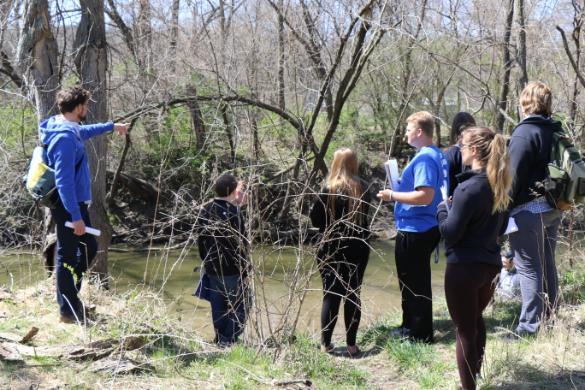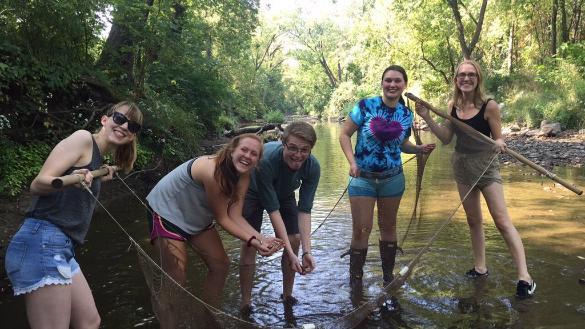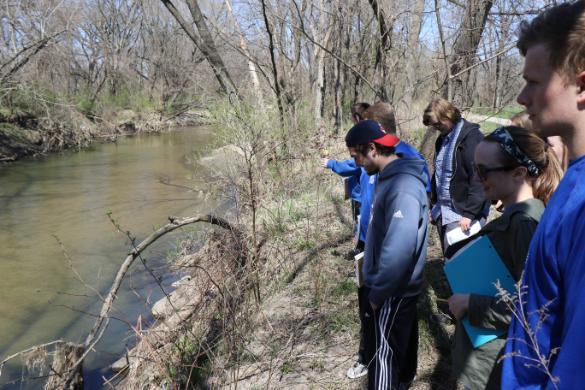Environmental Science
This interdisciplinary science degree prepares you as part of a liberal arts tradition to understand connections between human beings and their effects on the Earth's environment.
Drake Environmental Science students are grounded in the natural sciences disciplines while also acquiring the ability to synthesize information across disciplines. Students develop technical and quantitative skills including laboratory and field methods, statistical analysis and the implementation of geographic information systems (GIS). Courses in the social sciences such as economics, politics, policy and ethics provide an important link to the human element associated with environmental issues. As a graduate of the program, you will be well prepared to undertake graduate study in diverse fields of environmental sciences, as well as to work in governmental and nongovernmental capacities on environmental issues.
Field work is a key component of this degree, featured in biology, geology and environmental classes. Iowa's central location in the nation allows you to experience a diversity of ecosystems and human communities during frequently offered weekend and summer field trips. The program also connects you with ongoing environmental projects (for example an 8,000-acre prairie restoration project including bison and elk at the Neal Smith National Wildlife Refuge, 20 miles east of campus), with offerings at Iowa Lakeside Laboratory in Milford, Iowa (a biological field station), and with semester-long marine science experiences at the University of Southern Mississippi's Gulf Coast Research Laboratory in Ocean Springs, Mississippi.
Students who major in Environmental Science choose one of two tracks, and this helps them to develop deeper skills in their area of interest.

Biological Conservation Track
The biological conservation track emphasizes field work and understanding interactions in living systems. Students will gain a strong familiarity with a range of organisms, although many will choose to focus more upon either plants or animals. Students who choose this track should be willing to spend time in the field and to endure heat, cold, rain, bugs, and other hazards of nature.
This track provides a broad background in human/ecosystem interactions and prepares you well for careers in, for example, natural resource management, parks, habitat surveys, environmental consulting, zoo conservation, as well as graduate study in conservation biology, environmental science, ecology, or natural resource management.

Aquatic & Earth Sciences Track
The aquatic & earth sciences track emphasizes an understanding of the physical world that supports and defines natural and human systems. Students will gain a strong familiarity with water chemistry, landscape geology, mapping techniques, and ways that water influences and is influenced by its environment.
Poor water quality is one of Iowa's most pressing environmental challenges, and there is very high demand for graduates with this background. The track also prepares you for careers in areas including water resources, environmental consulting, or regulatory enforcement, as well as graduate study in hydrology, aquatic ecology, earth sciences, or environmental science.
Current Catalog Requirements for a B.A. in Environmental Science
Current Catalog Requirements for a B.S. in Environmental Science
Current Catalog Requirements for a Minor in Environmental Science





